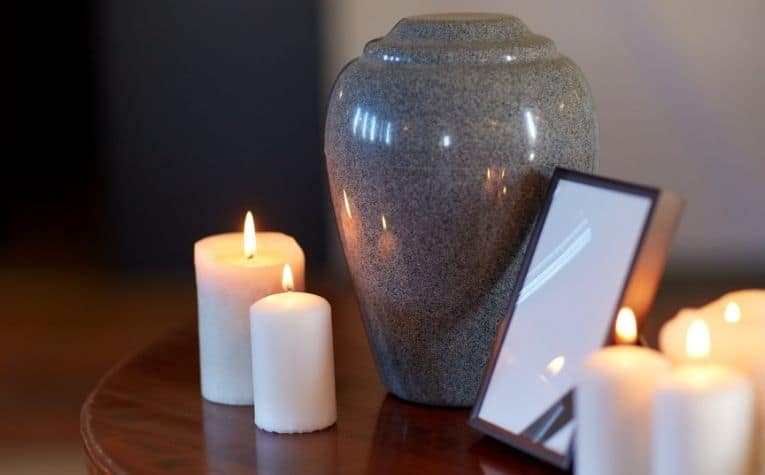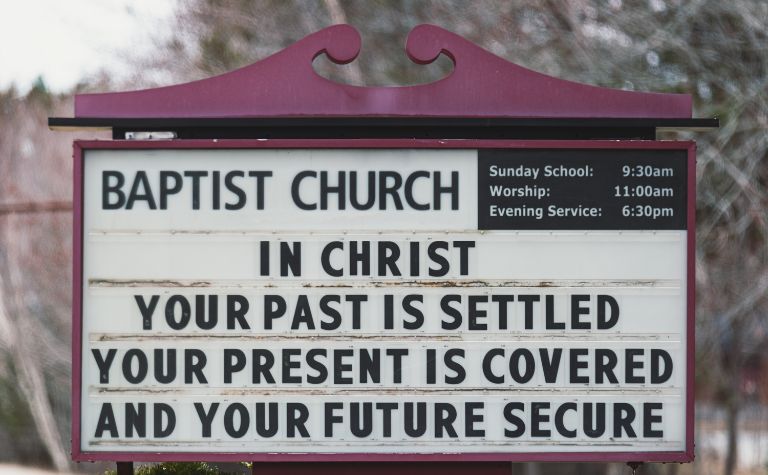Baptist beliefs about death and the afterlife are an important part of the tradition’s theology. Doctrines related to the human body and the nature of life in heaven are deeply rooted in the Bible’s teachings, which Baptists have historically zealously followed. In light of this, do Baptists think cremation is acceptable for corpses?
The Baptist tradition teaches that cremation is an acceptable option for the bodies of deceased Christians, though some individuals opt for burial for the sake of witness. Cremation doesn’t thwart any future eternal reality for the believer, like bodily resurrection, according to historic Baptist teaching.
Why do some Baptists believe that cremation isn’t the best witness? Why do some Christian traditions believe that cremation is a bad option? Does the practice of burning corpses come from non-Christian religions? Keep reading to learn more.

Why Baptists Think Cremation Is Permissible
The practice of cremation has increased around the world in the last 50 to 100 years, and Christians, including Baptists, have been part of the upward trend.
Historically, burial has been the traditional way that Christians treat the corpse of a deceased believer, but that is changing. (Also see This Is What Baptists Believe About Salvation)
Some Baptist Christians choose cremation instead of burial for reasons such as:
Common reasons people are cremated
- Cost: Today, cremation is often less expensive when compared with the cost of a gravesite, headstone, coffin, and other funeral expenses. In some cases, cremation results in less of a financial burden on family and friends.
- Speed: Some consider cremation a faster and cleaner way to treat a corpse. People who cite this reason often find the slow deterioration of a corpse in a coffin lying in the ground to be unsettling.
- Land: Like others who are cremated, some Baptists believe that burning a corpse is better for the environment than a burial. Cremation doesn’t require using land for a gravesite.
- Isolation: Some believe that burial is best when friends and family intend to visit the gravesite. Due to the breakdown of the family and the fact that some family members no longer live in close proximity to each other, burial has become less appealing as a way to remember the deceased.
What about the resurrection of the body?
Baptists, like other Christians, believe in bodily resurrection from the dead. The doctrine states that, like Jesus was physically raised from the dead, those who trust in him for salvation will be similarly raised. The doctrine is rooted in verses like these:
- 1 Thessalonians 4:14, “For since we believe that Jesus died and rose again, even so, through Jesus, God will bring with him those who have fallen asleep.”
- Romans 8:11, “If the Spirit of him who raised Jesus from the dead dwells in you, he who raised Christ Jesus from the dead will also give life to your mortal bodies through his Spirit who dwells in you.”
- 1 Corinthians 6:14, “And God raised the Lord and will also raise us up by his power.”
Some Baptists believe that cremation doesn’t align with the biblical promise of bodily resurrection. Others argue that God’s power is able to reconstitute a cremated body just as it’s able to resurrect a buried corpse. (Also see Do Baptists Believe Baptism Is Necessary for Salvation?)
Whether a deceased person is cremated or buried, only God’s power can breathe new life into a corpse and bring it to eternal life.

Some Baptists Believe Burial Is the Best Witness
Some Baptists believe that while cremation is permissible, burial is a better witness. Not destroying the body with fire, but leaving it relatively intact (aside from the breakdown due to decomposition), best reflects the believer’s future hope in bodily resurrection. (Also see Why Don’t Baptists Have Crucifixes?)
Judgment is described with the imagery of fire and burning
Cremation isn’t mentioned in the Old or New Testament except in relationship to condemnation and judgment.
Moreover, cremation depicts the way the Bible says unbelievers will be judged, like in 2 Peter 3:7: “But by the same word the heavens and earth that now exist are stored up for fire, being kept until the day of judgment and destruction of the ungodly.” (ESV, emphasis added)
Not only is a burial for the purposes of witnessing the choice of the deceased person, but sometimes it’s easier for friends and family as well.
To some, the priority is financial, and so a cremation is their first choice (see above), but it bothers others to consider burning the body of their family member. (Also see Do Baptists Believe in the Trinity?)
Bible verses that support burial
Some Baptists who opt for burial instead of cremation find support in certain Bible verses, like:
- Abraham bought burial sites for himself and Sarah. Genesis 23:9, “For the full price let him give it to me in your presence as property for a burying place.” (ESV)
- Joseph wanted his bones removed from Egypt. Genesis 50:25, “Then Joseph made the sons of Israel swear, saying, ‘God will surely visit you, and you shall carry up my bones from here.’”
- God buried Moses. Deuteronomy 34:6, “And He buried him in the valley in the land of Moab, opposite Beth-Peor; but no man knows his burial place to this day.”
- John the Baptist was buried. Mark 6:29, “When his disciples heard of it, they came and took his body and laid it in a tomb.” (ESV)
- The Rich Man. Luke 16:22, “The poor man died and was carried by the angels to Abraham’s side. The rich man also died and was buried.” (ESV)
- Lazarus was buried. John 11:17, “So when Jesus came, He found that he had already been in the tomb four days.” (ESV)
- Jesus was buried. Mark 15:46, “And Joseph bought a linen shroud, and taking him down, wrapped him in the linen shroud and laid him in a tomb that had been cut out of the rock.” (ESV)
Baptist pastor John Macarthur notes that burial was the common practice in Israel, but there were exceptions as well: “The Scriptures do not say anything about required modes of burial for believers. Standard practice in the Old Testament and in the New Testament was burial.”
He continues, “Saul and Jonathan were cremated by the Israelites after their deaths, but this was not normal practice in Israel. Their bodies were mutilated by the Philistines, thus the decision was made to cremate, then bury the ashes (1 Samuel 31:8-13).”
Does cremation have pagan origins?
Other religions, such as Hinduism, have a long practice of cremation. Their reasons for choosing cremation are much different than those of a Baptist or other Christian. (Also see Cremation and Catholicism: What Are the Rules?)
Because a non-Christian group practices a certain activity doesn’t make it necessarily wrong for those who follow Christ.
For example, Hindus pray. Because they pray in ways that are different than what the Bible describes, that doesn’t mean Christians should abandon prayer. (Also see Do Baptists Believe in Mortal Sin?)

Unique circumstance
Those who take a universally hard stand against cremation must take into account unique circumstances in which corpses are destroyed that are beyond the control of the individual. Examples include:
- Those who die in warfare, whose bodies are destroyed beyond physical reconstitution.
- Aborted babies, whose bodies are often torn apart in the womb and discarded in ways that don’t preserve the corpse.
- Corpses don’t often survive intact in disasters like plane crashes. Drowning at sea results in deterioration as well.
Seeking wisdom
For those planning for their own death or that of a loved one, it would be wise to seek the counsel of a pastor or minister.
The support of family, friends, and clergy is especially important when people need to make difficult decisions when emotions are intense. (Also see Can a Baptist Deacon Marry a Couple?)
The hope for Christians isn’t in cremation or burial but in Christ alone, who has promised his followers a glorious new life with new bodies: “So also is the resurrection of the dead. It is sown a perishable body, it is raised an imperishable body; it is sown in dishonor, it is raised in glory; it is sown in weakness, it is raised in power; it is sown a natural body, it is raised a spiritual body. If there is a natural body, there is also a spiritual body.” (1 Corinthians 15:42-44, ESV)
References:
[1] Source
[2] Source
[3] Source
Related Questions
Baptist and evangelical churches are numerous in America, and the influence of each tradition has also spread to different continents and countries. As a result, many people have heard the terms...
The Baptist tradition is one of the largest branches of Christianity in America and around the world. Historically, some Protestant denominations have prohibited their members from activities like...
